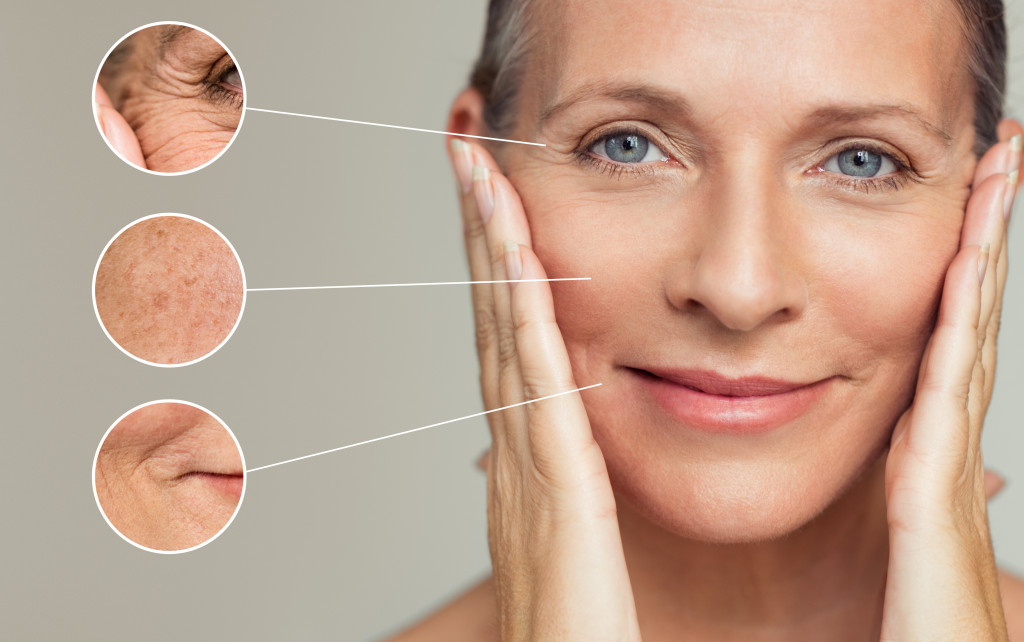- Skin sagging and dryness are common concerns for many individuals.
- Causes of skin sagging include UV exposure, smoking, weight loss, and dehydration.
- Risks of skin sagging include wrinkles, movement difficulties, and self-esteem issues.
- Treatments for skin sagging and dryness include proper skincare practices, diet, sun protection, and medical procedures.
- Vitamin C serum is a beneficial ingredient for improving skin elasticity and reducing the appearance of sagging.
Your skin is the largest organ in your body, constantly exposed to harsh environmental factors. Over time, your skin may begin to sag or become dry and flaky due to a variety of reasons. Whether you are experiencing sagging skin due to age or dryness due to a harsh climate, it is essential to understand the causes and risks associated with skin problems. Many treatments are available to prevent and reduce the effects of sagging and dry skin. In this article, we will discuss the causes, risks, and treatments for skin sagging and dryness.
Causes

While aging is a natural cause of skin sagging, some surprising triggers can hasten the process. Here are some leading reasons for skin sagging and how to prevent or reduce it.
1. UV Exposure
One of the leading causes of skin sagging is ultraviolet (UV) exposure. Sun damage can cause collagen and elastin fibers to break down, resulting in saggy, wrinkled skin. To prevent this, it is essential to wear sunscreen every day, even on overcast days. Also, avoid tanning beds and limit your time in direct sunlight during peak hours.
2. Smoking
Smoking is another significant cause of premature skin aging. Nicotine and other chemicals in cigarettes can damage collagen and elastin fibers in the skin, leading to sagging and wrinkles. To reduce the risk of skin sagging, quit smoking or never start.
3. Weight Loss
Many of us strive to maintain a healthy weight, but rapid weight loss can take a toll on our skin. When we lose weight, the skin doesn’t always return to its previous state, leading to sagging and wrinkles. To prevent skin sagging during weight loss, it’s essential to lose weight gradually and stay hydrated.
4. Dehydration
Speaking of hydration, dehydration can also lead to skin sagging. When our bodies are dehydrated, they don’t have enough water to support healthy skin cell production and collagen synthesis. To keep your skin looking plump and firm, make sure you’re drinking enough water every day.
Risks
Sagging skin may not seem like a health concern, but it can lead to other problems. Firstly, sagging skin is more prone to wrinkles, making signs of aging more apparent. Secondly, it can cause difficulties in movement as your skin may rub on clothes, causing discomfort. Finally, sagging skin may lead to poor self-esteem and, in some cases, mental health issues. Maintaining a healthy lifestyle, including exercise, a balanced diet, and adequate hydration, can help reduce the risks of sagging skin.
On the other hand, dry skin can cause discomfort and even pain as it can become itchy and prone to cracking, leading to infections. If left untreated, dry skin can cause inflammation and eczema, which causes red, itchy, and inflamed skin patches. People with dry skin are also at a higher risk of infection, as the skin can less protect itself from external bacteria. Proper moisturization can help reduce the chances of dry skin.
Treatments for Skin Sagging and Dryness

Both skin sagging and dryness can be treated with proper skincare, diet, and sun-protection practices. Skin sagging can be treated with surgical or nonsurgical procedures, such as botox or filler injections, micro-needling, and lasers.
Skincare products with ingredients like retinol, hyaluronic acid, and vitamin C can also help improve skin elasticity and reduce the appearance of sagging. For dry skin, it is essential to use a gentle, hydrating cleanser and moisturizer daily. Additionally, adding a vitamin C serum to your skincare routine can help brighten the skin and improve overall texture. This holy grail ingredient is known for its ability to stimulate collagen production, leaving you with firmer and more youthful-looking skin.
Dry skin can also be treated with moisturization, vitamin D creams, and natural oils such as coconut and jojoba oil. A balanced diet with adequate hydration, sleep, and exercise may also benefit skin sagging and dryness.
The Bottomline
In conclusion, skin sagging and dryness are common problems that become more prevalent as we age. Maintaining healthy habits such as exercise, a balanced diet, and hydrating the skin can help prevent and reduce the effects of skin sagging and dryness. For those already experiencing these skin problems, using the right skincare products and seeking medical attention may help achieve a healthier glow. Remember, investing in your skincare routine is investing in yourself.

